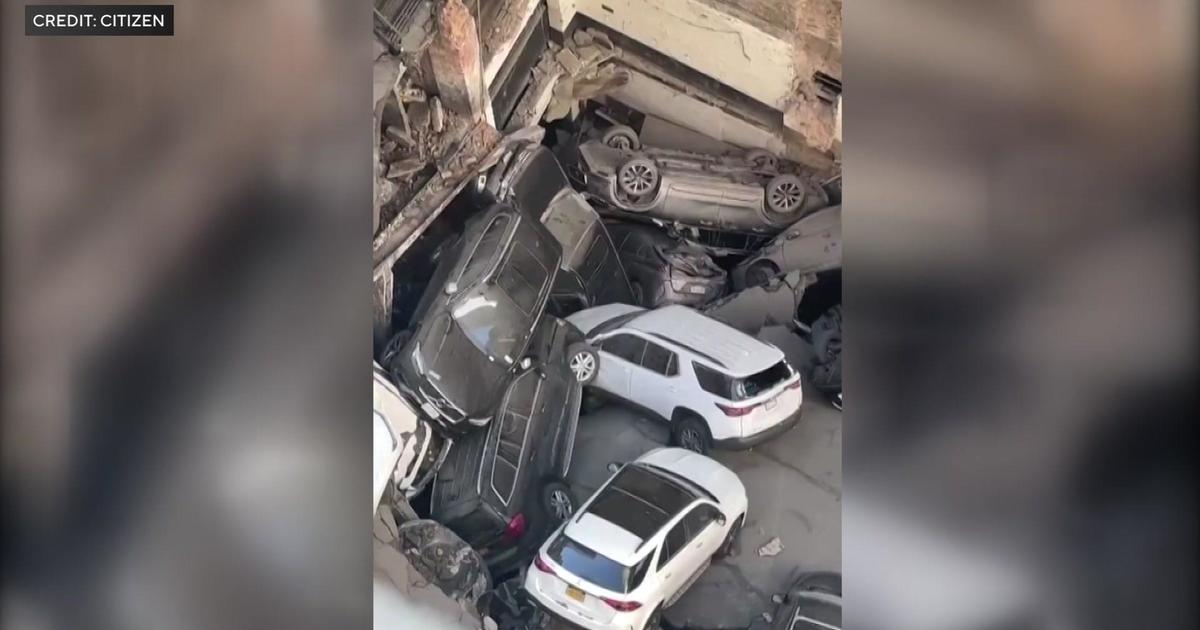Bratton: 'It's The Right Time' To Leave Law Enforcement
NEW YORK (CBSNewYork) -- Outgoing Police Commissioner Bill Bratton said "it's the right time" for him to be retiring from law enforcement.
Speaking Wednesday to "CBS This Morning," Bratton said the NYPD is in "excellent shape" and is "moving very forcefully to address all of the issues of the day."
"It's the right time for me personally," he said. "It's the right time for me professionally."
Bratton announced his resignation on Tuesday and said he will be stepping down as the city's top cop in September. James O'Neill, currently the Chief of Department, will be taking over as the new commissioner.
He also spoke Wednesday with CBS2's political reporter Marcia Kramer about how the department will be different under his successor.
"Jimmy has prepared with his neighborhood policing plan the ability of the department to address the racial divide," Bratton said. "Jimmy is going to have significant gains on dealing with the racial tension in this city."
He has "the resources to do it, the leadership to do it and the will to do it," Bratton added.
If that happens, it would be a major score for Mayor Bill de Blasio, who has made reforming the police department one of his major initiatives, as he faces a potential bumpy re-election campaign next year.
Bratton's new job will be as senior managing director and executive chairman of Teneo Risk, a chief executive officer advisory firm that will focus on cyber risks, data security, infrastructure development, crisis response preparedness and more.
De Blasio praised Bratton Tuesday night in Harlem during the annual National Night Out Against Crime.
"No one has done more to keep us safe in the history of our city than Bill Bratton," de Blasio said.
Bratton is in his second stint as commissioner in New York. He began serving as de Blasio's police commissioner in January 2014, but he first led the department under former Mayor Rudy Giuliani from 1994 to 1996.
Bratton's 31-month tenure under de Blasio has been marked by significant progress. Overall crime is at historic lows while the department has hired more cops, bought more equipment and revamped training.
But Bratton has also dealt with significant challenges.
Four cops were murdered, racial tensions have flared and a corruption scandal that started during the Bloomberg administration blew up under de Blasio and Bratton, CBS2's Andrea Grymes reported.
Bratton said he was "leaving with reluctance," adding that the ongoing NYPD corruption probe had nothing to do with his decision.
Civil rights leader the Rev. Al Sharpton weighed in on the changing of the guard at the NYPD on Tuesday.
"Until we have a city where people are held accountable when they commit a crime, whether they have on blue jeans or blue uniforms, we will not be able to have a real healthy community police relations," Sharpton said. "O'Neill needs to meet and deal with how he would get there and we would reserve our judgement until that time."
O'Neill is known as a "cop's cop," serving in nearly every uniformed position in the NYPD. He started in the early 80s on patrol overnight as a transit officer.
"You learned quickly how to be cop, how to be aware of your surroundings, how to navigate the maze of subway lines," he said Tuesday. "But most importantly, how to talk to every kind of person imaginable."
O'Neill has risen through the ranks since then and is the architect of the department's new neighborhood policing program, which the mayor touts as a growing initiative to strengthen the relationship between police and the community.
In 2008, O'Neill weathered a corruption scandal. He lost his job as commander of the narcotics division after a sting operation found officers using drugs they seized to pay off informants.
O'Neill wasn't involved, but he languished for more than a decade until Bratton returned to the department. O'Neill will also have to deal with an ongoing corruption probe that has already led to the indictment of several top chiefs.
"These corrupt police officers cannot be allowed to continue in the police department. He needs to set that tone at the top," said John Eterno, criminal justice expert from Molloy College.
While the mayor and O'Neill are in lock step on neighborhood policing, the real test for many New Yorkers may be how he deals with problems like the homeless, and neighborhoods overrun with those who use synthetic marijuana or K2, Kramer reported.
He will have help from Ben Tucker, who is staying on as first deputy commissioner, and Carlos Gomez, who is being promoted to chief of department.



